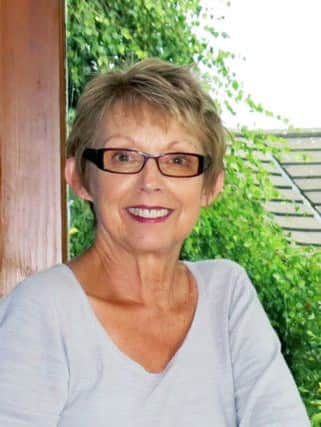‘Every step I take’: Living with rheumatoid arthritis for 30 years


Gillian Coward (62) was diagnosed with the crippling conditions when she was just 33 and says it has had a significant affect on her life and even her friendships.
Gillian agreed to be filmed about her own experiences of RA as Arthritis Care revealed that less than half (44%) of people with rheumatoid arthritis in the UK feel prepared before they visit their RA doctor or nurse, and only a third (37%) saying they feel confident before they enter the consultation room.
Advertisement
Hide AdAdvertisement
Hide AdOver 50 per cent (53%) of respondents stated that as RA is not a ‘visible’ disease, it can be difficult to discuss the concerns around their condition with their doctor or nurse.
When she was diagnosed more than 30 years ago Gillian said that she did not have the benefit of the internet to find out more about the condition.
But since then she has fully realised how all pervasive RA is: “I’m remembering the words of a song which begin, ‘Every move you make, every step you take,’ and that’s how RA affects my life, particularly during flare-ups, getting up in the morning, getting dressed, holding a toothbrush, a hairbrush, turning a key in a lock, it affects every part of your life,” she says.
I think during the past, let’s say, 30 years that I’ve been treated, initially, there were many fewer resources in this area. For example, I was treated by a consultant physician, initially, rather than a rheumatologist. I was very happy with the treatment I received, because he was very well-informed about arthritis as a condition, but, nevertheless, for surgeries and for specialist treatments, I was obliged to travel quite a long way away.”
Advertisement
Hide AdAdvertisement
Hide AdGillian said that being able to communicate clearly with medical professionals will result in alleviating any fears, such as her own phobia of needles.
“It’s absolutely vital to have open and honest conversations with your doctor,” she says. “You’ve got to realise that they are there to assist and help you, and they can only do this if you are open and honest, and if you realise that you’re building a partnership, you’re not just a passive receiver of treatment.
“My disease has had quite an impact on my friendships. I think I need friends who listen to me and help me when I ask for help, but sometimes I also need friends that are able to step in and say, ‘Gillian, stop, wait, you need help now.
“My hopes and expectations for the future are that I can remain as active as I am at the moment and as involved in things that interest me, such as Arthritis Care.”
“and my friendships and my wide range of activities locally.”